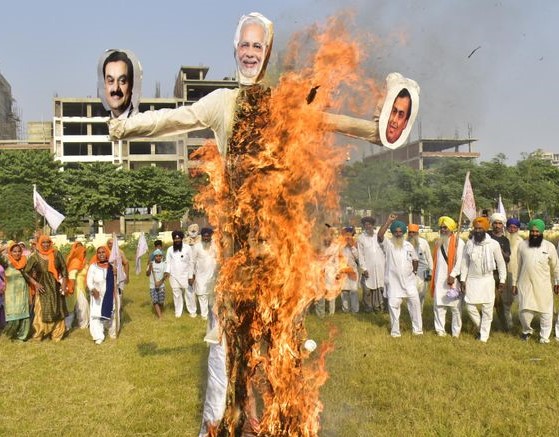
R Krishna Das
Some three decades ago, if a young aspirant was asked what he wished to become; pat came the reply—Tata or Birla.
The two were the synonyms of Indian corporate for a long time and earned great respect from the people. Three decades down, another two private sector undertakings emerged and created a niche for itself, and India in the world economy. But by design, it had been selectively targeted with the sole intention to tarnish the image.
As the saying goes, a group of 10 organized cadre is more powerful than a billion unorganized people. And this is the new challenge that the two corporates headed by Mukesh Ambani and Gautam Adani are now facing even as Indian economy is taking a big leap forward under the leadership of Prime Minister Narendra Modi.
With international influencers joining the league to bash India’s indigenous businesses, the people are being made to understand privatization in a political parlance than in the educational and economic points of view. There may be debate to what extent privatisation is good or bad for the country; but what remains undebatable is that the model results in robust economic growth.
When India attained Independence in 1947, it had conservative economic policy. There was no sufficient capital for the small business houses to start a company and share its contribution for India’s growth. The government was running all the businesses. The model was socialistic; drawn from Russia with no big room for the private company. The trend continued for long but missed to achieve the target.
The Gulf war in the early 90s devastated the Indian economy. The then Prime Minister, P V Narasimha Rao and Finance Minister Manmohan Singh opened the economy with the introduction of Liberalisation, Globalisation and Privatisation (LPG) model. The entry of foreign and private players started the economic reform in India. Besides better service, people also had an option in the market where the public sector had a monopoly.
For instance, a colony at the outskirts of Chhattisgarh’s capital city had no landline telephone connectivity. People started communication and even knocked on the door of the telecommunication ministry. The department was reluctant with single reason—no feasibility. The people again prepared a memorandum and informed the BSNL that 500 customers were ready to book, but the department preferred not to stretch the line that it required to expand only a kilometer.
The private companies helped the colony to remain connected. Now, could anyone explain how smashing private companies’ telecom towers or launching campaigns to boycott Reliance Jio was in public interest? Should the people move into the era when a telegram message was delivered after the death rituals were completed as the public sector company found no feasibility to keep them connected?
Similarly, the Communist government in Kerala and its cadre raised a terrific hue and cry over privatization of Thiruvananthapuram airport. Just to stop the Adani Group that emerged as the biggest bidder, the Kerala Government offered to run the airport when it could not successfully operate the buses of the state transport corporation on road. The desperation was so high that the state government, with no surety of funding, participated even in the bid but failed.
The private companies now into the business are flourishing because of auctions instead of allocations. Ambani and Adani stand as examples.
One needs to understand the calculation behind the campaign. There is no logic behind protest against the Railway’s privatisation is new. Just 5 per cent of the trains would go to the private hands and that too in clusters where services were shabby. It is the same model that Japan executed and hence those on to the job have no clarity to claim the railway privatisation has failed in many countries.
The campaign is neither against the privatisation nor policy. It is against persons against whom a well-organised group has reservation. The spate could be seen in the last six years. There were no environmental issues or rights violations when a number of private industries propped up in the 80s and 90s.
A selective campaign against a few industrialists is not good even for the sector. If the ideological driver protest against the industry continued, it would set a new trend that could land many corporate houses in trouble that have direct link with the political party that ruled the country for long. A serious note needs to be taken into account; is it a selective industry or India in general that has been targeted!
The campaigners would make a final assault by raising the issues of monopoly and subsequently the price hike. Not all would know that the government had the power of price capping; what they understood was that they could recharge their mobile even for Rs 10.
After all, the corporate means business and will keep the price that suits the consumer’s pocket.



